
Norma Deloris Egstrom, known professionally as Peggy Lee, was an American jazz and popular music singer, songwriter, and actress whose career spanned seven decades. From her beginning as a vocalist on local radio to singing with Benny Goodman's big band, Lee created a sophisticated persona, writing music for films, acting, and recording conceptual record albums combining poetry and music. Called the "Queen of American pop music," Lee recorded more than 1,100 masters and co-wrote over 270 songs.

Nelson Smock Riddle Jr. was an American arranger, composer, bandleader and orchestrator whose career stretched from the late 1940s to the mid-1980s. He worked with many vocalists at Capitol Records, including Frank Sinatra, Ella Fitzgerald, Nat King Cole, Judy Garland, Dean Martin, Peggy Lee, Johnny Mathis, Rosemary Clooney and Keely Smith. He scored and arranged music for many films and television shows, earning an Academy Award and three Grammy Awards. He found commercial and critical success with a new generation in the 1980s, in a trio of Platinum albums with Linda Ronstadt.
Gordon Hill Jenkins was an American arranger, composer, and pianist who was influential in popular music in the 1940s and 1950s. Jenkins worked with The Andrews Sisters, Johnny Cash, The Weavers, Frank Sinatra, Louis Armstrong, Judy Garland, Nat King Cole, Billie Holiday, Harry Nilsson, Peggy Lee and Ella Fitzgerald.

Frank Rosolino was an American jazz trombonist.
"I Remember Clifford" is an instrumental jazz threnody written by jazz tenor saxophonist Benny Golson in memory of Clifford Brown, the influential and highly regarded jazz trumpeter who died in an auto accident at the age of 25. Brown and Golson had done a stint in Lionel Hampton's band together. The original recording was by Donald Byrd in January 1957.
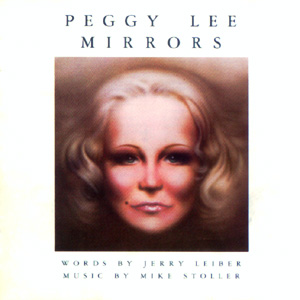
Mirrors is a 1975 album by Peggy Lee on A&M Records. The album is made up of neo-cabaret "art songs" sung by Peggy, written and produced by rock & roll pioneers Jerry Leiber and Mike Stoller and mostly arranged & conducted by Johnny Mandel.
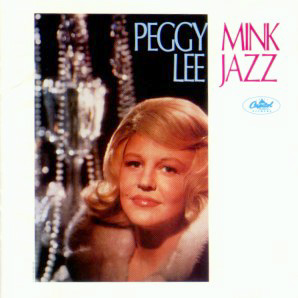
Mink Jazz is a 1963 studio album by Peggy Lee, arranged by Benny Carter and Max Bennett.

Norma Deloris Egstrom from Jamestown, North Dakota is a 1972 album by Peggy Lee. It was her final album for Capitol Records, her label since 1957 and, prior to that, from 1944 to 1952.
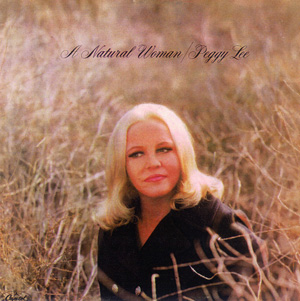
A Natural Woman is a 1969 album by Peggy Lee. It was arranged and conducted by Bobby Bryant and Mike Melvoin. John Engstead took the cover photograph.

Willis Leonard Holman was an American composer, arranger, conductor, saxophonist, and songwriter working in jazz and traditional pop. His career spanned over seven decades, starting with the Charlie Barnet orchestra in 1950.
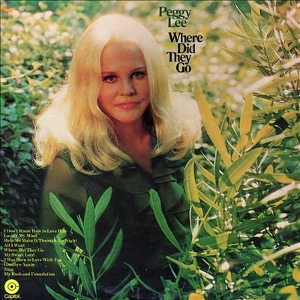
Where Did They Go is a 1971 album by Peggy Lee. It was arranged and conducted by Don Sebesky and Al Capps.

"Spinning Wheel" is a song from 1968 by the band Blood, Sweat & Tears, written by Canadian lead vocalist David Clayton-Thomas and appearing on their eponymous album.

Rhinestone Cowboy is the 28th studio album by American country music musician Glen Campbell, released in July 1975 by Capitol Records. It is a concept album based on the idea of an over-the-hill country musician who is uneasy about his previous fame. The album was recorded in Hollywood, and produced by Dennis Lambert and Brian Potter. Featuring the hit singles such as "Rhinestone Cowboy" and "Country Boy ", the album peaked at number 17 on the Billboard 200.

Birks' Works is an album by trumpeter Dizzy Gillespie recorded in 1957 and released on the Verve label. The original album featured 10 tracks and was reissued as Birks Works: The Verve Big Band Sessions, a 2 CD compilation featuring unreleased tracks, alternate takes and tracks from Gillespie's previous 1956 albums Dizzy in Greece and World Statesman.

Meet the Jazztet is an album by the Jazztet, led by trumpeter Art Farmer and saxophonist Benny Golson featuring performances recorded in 1960 and originally released on the Argo label.
"Whisper Not" is a composition by Benny Golson. It is in a minor key and contains a shout chorus. Golson's account of writing the piece is that "I wrote it in Boston at George Wein's Storyville club when I was with Dizzy Gillespie's big band. I wrote that tune in 20 minutes." Some sources indicate that the first recording was by Gillespie, while others indicate that trumpeter Lee Morgan was first.
This article presents the discography of the jazz singer, songwriter, and composer Peggy Lee, covering her recording career from 1941 up to 1993.
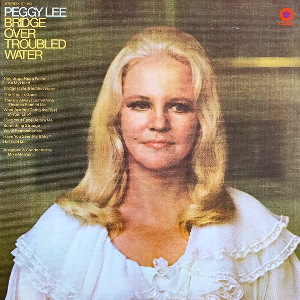
Bridge Over Troubled Water is a 1970 album by Peggy Lee.
Alton Reynolds Hendrickson was an American jazz guitarist and occasional vocalist.
Dennis Matthew Budimir was an American jazz and rock guitarist. He was considered to be a member of The Wrecking Crew.














